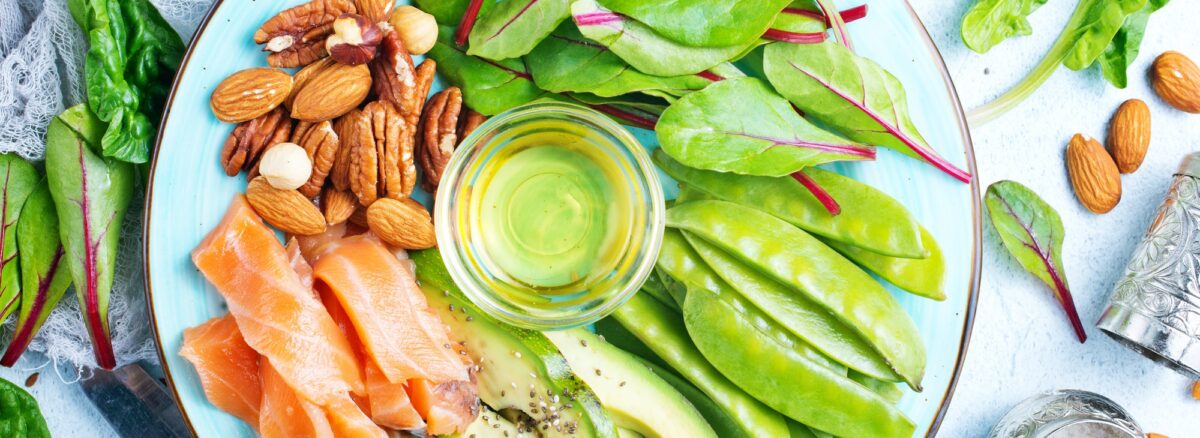Cholesterol is a waxy substance produced by your liver and obtained by eating animal products such as meat, dairy and eggs. Your liver will produce less cholesterol if you consume a lot of this substance from food, so dietary cholesterol rarely has a great impact on total cholesterol levels.
However, eating large amounts of saturated fat, trans fat and sugars can raise cholesterol levels. Bear in mind that there are different types of cholesterol.
While “good” HDL cholesterol may be beneficial for your health, high levels of “bad” LDL cholesterol, particularly when oxidized, have been linked to an increased risk of heart disease, heart attack, and stroke
So let’s look at how you can lower cholesterol;
1. Eat Foods Rich in Soluble Fiber
Soluble fiber is found in large quantities in beans, legumes, whole grains, flax, apples and citrus. Humans lack the proper enzymes to break down soluble fiber, so it moves through your digestive tract, absorbing water and forming a thick paste.
As it travels, soluble fiber absorbs bile, a substance produced by your liver to help digest fats. Eventually, both the fiber and the attached bile are excreted in your stool.
Bile is made from cholesterol, so when your liver needs to make more bile it pulls cholesterol out of your bloodstream, which lowers cholesterol levels naturally.
2. Enjoy Lots of Fruits and Vegetables
Eating fruits and vegetables is an easy way to lower LDL cholesterol levels.
Studies show that adults who consume at least four servings of fruits and vegetables each day have roughly 6% lower LDL cholesterol levels than people who eat fewer than two servings per day.
Fruits and vegetables also contain high numbers of antioxidants, which prevent LDL cholesterol from oxidizing and forming plaques in your arteries.
3. Cook with Herbs and Spices
Herbs and spices are nutritional powerhouses packed with vitamins, minerals and antioxidants. Human studies have shown that garlic, turmeric, and ginger are especially effective at lowering cholesterol when eaten regularly.
Eating just one garlic clove per day for three months is enough to lower total cholesterol by 9%.
4. Eat a Variety of Unsaturated Fats
Two main kinds of fats are found in food: saturated and unsaturated. On a chemical level, saturated fats contain no double bonds and are very straight, allowing them to pack together tightly and stay solid at room temperature.
Unsaturated fats contain at least one double bond and have a bent shape, preventing them from joining together as tightly. These attributes make them liquid at room temperature.
Research shows that replacing most of your saturated fats with unsaturated fats can reduce total cholesterol by 9% and “bad” LDL cholesterol by 11% in just eight weeks. Longer-term studies have also found that people who eat more unsaturated fats and fewer saturated fats tend to have lower cholesterol levels over time.
5. Avoid Artificial Trans Fats
While trans fats occur naturally in red meat and dairy products, most people’s main source is artificial trans fat used in many restaurants and processed foods. Artificial trans fats are produced by hydrogenating or adding hydrogen to unsaturated fats such as vegetable oils to change their structure and solidify them at room temperature.
Trans fats make a cheap alternative to natural saturated fats and have been widely used by restaurants and food manufacturers. However, substantive research shows that eating artificial trans fats increases “bad” LDL cholesterol, lowers “good” HDL cholesterol and is linked to a 23% greater risk of heart disease.
6. Eat Fewer Added Sugars
It’s not just saturated and trans fats that can raise cholesterol levels. Eating too many added sugars can do the same thing. One study found that adults who consumed 25% of their calories from drinks made with high-fructose corn syrup experienced a 17% increase in LDL cholesterol in just two weeks.
Even more troubling, fructose increases the number of small, dense oxidized LDL cholesterol particles that contribute to heart disease.
7. Enjoy a Mediterranean-Style Diet
One of the easiest ways to incorporate the above lifestyle changes is to follow a Mediterranean-style diet. Mediterranean diets are rich in olive oil, fruits, vegetables, nuts, whole grains and fish, and low in red meat and most dairy. Alcohol, usually in the form of red wine, is consumed in moderation with meals.
Since this style of eating includes many cholesterol-lowering foods and avoids many cholesterol-raising foods, it’s considered very heart-healthy.
8. Eat More Soy
Soybeans are rich in protein and contain isoflavones, plant-based compounds that are similar in structure to estrogen. Research has found that soy protein and isoflavones have powerful cholesterol-lowering effects and can reduce your risk of heart disease.
Eating soy every day for at least one month can increase “good” HDL cholesterol by 1.4 mg/dL and reduce “bad” LDL cholesterol by about 4 mg/dL.
Less processed forms of soy — such as soybeans or soy milk are likely more effective at lowering cholesterol than processed soy protein extracts or supplements.
9. Drink Green Tea
Green tea is made by heating and drying the leaves of the Camellia sinensis plant.
The tea leaves can be steeped in water to make brewed tea or ground into a powder and mixed with liquid for matcha green tea. A review of 14 studies found that consuming green tea daily for at least two weeks lowers total cholesterol by about 7 mg/dL and “bad” LDL cholesterol by roughly 2 mg/dL.

